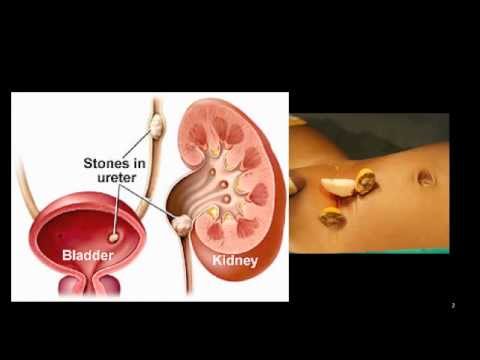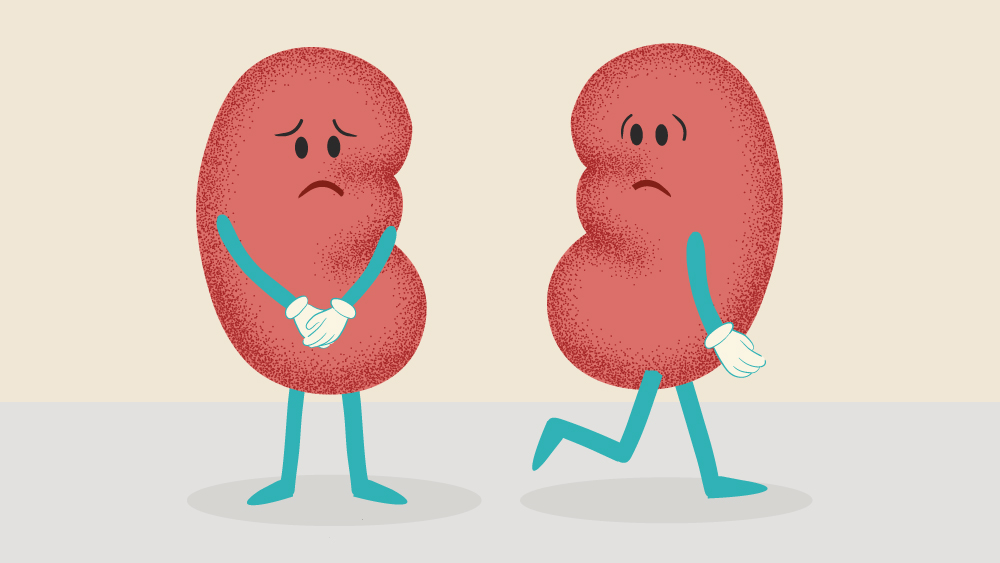
Autosomal recessive polycystic kidney disease or ADPKD is a very common type of kidney ailment that is hereditary in nature. Though rare, children affected by ADPKD normally develop the disease at birth, though rarely it may result in no symptoms for years until the kidney cysts become too large to affect its normal functions.
Kidney is a very important organ of the body. The kidneys keep the body's fluids in balance. They are responsible for filtering the blood, eliminating waste from the body and producing urine. Urine is the fluid that is excreted from the body. As you can imagine, kidney diseases can lead to many complications if left unchecked.
Kidney disease has a number of symptoms and signs that are often confused with other diseases
Signs and symptoms of renal failure may include pain in the lower right side of your abdomen, increased weight, reduced appetite and a dry cough. When the kidneys are not functioning properly the patient suffers from high blood pressure, weakness, fatigue and frequent urination. When the kidney is not functioning properly, it does not get enough water and nutrients to be able to carry out its main functions effectively. When the patient experiences a number of these symptoms, he or she should immediately consult a doctor about the possible kidney ailment. If the kidney problem is already diagnosed, treatment can begin immediately.
Kidney is the body's filtering organ and therefore it is important that you check your kidneys on a regular basis. There are several symptoms that indicate that your kidneys need to be checked. One of the symptoms is pain in the lower right side of the abdomen, which may extend to your ribs. You may also feel pain while you are urinating, and there may be pain when you eat food. If you experience any of these symptoms, you should immediately consult a doctor.
Though the symptoms of polycystic kidney disorder are painful, they are normal in nature. These symptoms occur as a result of the kidney filtering process and the kidney is able to do its job properly. However, if your symptoms persist for a longer period of time, it may indicate that the kidney has not function properly due to some reason.

Polycystic kidney is not life-threatening and there are treatments available that can help in relieving the pain caused by this condition. Your health care provider will guide you through the treatment procedure. One of the common treatments is dialysis, which is also referred to as peritoneal dialysis.
Dialysis is the use of chemicals or machines to remove the waste from the blood
Since polycystic kidney is a type of kidney ailment, the treatment should be made specifically to treat this kind of kidney ailment.
The treatment procedure involves removing the waste from the blood and then passing the treated fluid out of the body via a tube. As the treatment is performed, the body is not exposed to the kidney stones. However, in most cases, dialysis is not necessary because the body is able to eliminate the waste through natural elimination. In addition to dialysis, other medications are used to treat the kidney ailment.
There are several medications available for treating kidney disease, and one of the most common types of medications used to treat this type of kidney ailment is DDAVP or diuretics. These medications are also used to treat hyperchloremic kidney problems, which are caused by excessive water intake or dehydration.
Another type of medications used to treat this condition is antibiotics. Some medications that are commonly used are azithromycin, nalidixicloflazide and clindamycin. For people who have high cholesterol levels, sulfasalazine can also be used. There are also many drugs that can be used in combination with antibiotics, such as anti-diuretic and anti-catarrheal drugs.
It is essential for you to consult a doctor if you experience any signs or symptoms that indicate the presence of this type of kidney ailment. Do not delay consulting a doctor until you have consulted your family physician or your primary care provider. This will save you time and money. Consult a doctor immediately, because if you are left untreated, kidney disease can lead to other complications.